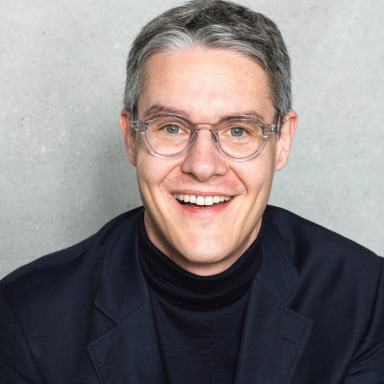Increasing Participation in the Energy Transition: Making Community Energy Cooperatives More Diverse
14.03.2024
Germany plans to meet 80% of its electricity needs from renewable energy by 2030. Following the amendment of the Renewable Energy Sources Act in 2023, community energy cooperatives are set to become important drivers of a participatory energy transition. However, research shows that some population groups do not participate in or benefit equally from existing community energy projects. If community energy is to become a broad foundation of the energy transition, political actors must do more to improve diversity and gender equality within community energy projects and ensure that they become more responsive to members' preferences.

The term "community energy" can be applied to a variety of projects, some of which are more grassroots-focused ("grassroots movement"), while others are professionally managed, large-scale energy projects. In some towns, for example, it was the members of local environmental initiatives or heritage associations that founded energy cooperatives. Larger projects, on the other hand, are more commonly initiated by companies, banks, public institutions or businesses.
Increased support for community energy projects through feed-in tariffs and exemptions from tendering requirements could lead to a new boom in community energy in Germany. In addition to these measures, the roll-out of compensation schemes for affected communities is set to boost public acceptance of wind and solar projects. On the other hand, these new financial benefit-sharing measures lack the democratic dimension of grassroots projects. This raises the issue of how increased support for community energy is likely to affect efforts to strengthen "energy democracy".
Addressing socially disadvantaged groups
With this in mind, Jörg Radtke from the Research Center for Sustainability - Helmholtz Center Potsdam (RIFS) and Nino Bohn from the University of Siegen examined data gathered in an extensive survey of members from 85 community energy projects in Germany. The results show that community energy does not automatically strengthen energy democracy, says Jörg Radtke: “Political actors and institutions must take steps to ensure that everyone is addressed – including socially disadvantaged groups. In the case of community energy, we are specifically talking about younger, female and non-binary people and low-income households. Special consideration must also be given to population groups that are negatively affected by the transitions to new heating systems and electromobility."
The researchers categorized members according to various characteristics: Age, gender, income, education and personal attitudes – for example, whether membership is motivated by ecological values, financial interest or idea that “energy belongs in the hands of the citizens”. A demographic analysis revealed that men, older citizens and academically educated individuals are strongly overrepresented compared to other population groups.
"This is not a new finding in international research; similar findings have been reported everywhere. However, deeper analysis of the data revealed another, more serious issue: namely, the substantial differences in attitudes towards community energy between the various age, education and gender groups. As a consequence of their underrepresentation, the ideas and views of younger citizens and women are not adequately reflected in the development and design of community energy projects. This would not be an issue if their views were congruent with those of the dominant groups, but this is not the case: younger and female population groups have a different understanding of the concept of “citizen energy” than older men," says Radtke.
The results in detail:
1) Age is the most important factor influencing attitudes towards community energy projects. Older members placed a stronger emphasis on idealistic motives; they understand community energy as a democratic practice that supports the local community. Younger members have a more pragmatic attitude and feel less obliged to the local community.
2) Gender also plays a role: Although men and women have similar motivations and priorities, women place greater emphasis on the value of democratic governance, whereas the financial returns provided by projects are more important to men. Women tend to view community energy projects as social spaces of togetherness and living democratic community. Men, on the other hand, initially emphasise idealistic values, but ultimately prioritise the professional management of projects.
3) Income is another important factor, but is less influential than age and gender. Members with higher incomes are more interested in returns and are less idealistic.
4) The analysis also showed that members with academic backgrounds are more convinced of the benefits of regional value creation, while non-academics tend to emphasise the sense of community created by projects.
To make projects more inclusive and diverse, the authors recommend that community energy projects tailor outreach efforts to target individuals without academic qualifications and build community structures that are welcoming to people who are less informed about energy issues. In addition, projects should seek to offer new members more than just an opportunity for financial investment, without evoking the image of an elite club of altruists. New members should feel represented and be able to identify with the project. To date, citizens involved in community energy projects have rarely made use of their co-determination rights and have tended to give management boards a free rein. However, mentoring and diversity programmes could engage new target groups and promote inclusion.
Radtke, J., & Bohn, N. S. (2023). Mind the gap: Community member perceptions of shortcomings in diversity and inclusivity of local energy projects in Germany. Utilities Policy, 85: 101686. https://doi.org/10.1016/j.jup.2023.101686
Contact

